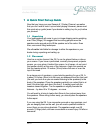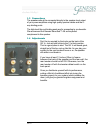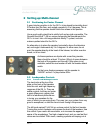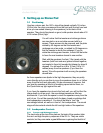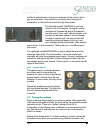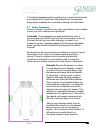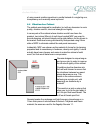
ver 1.0
14
1414
14
~ÄëçäìíÉ=ÑáÇÉäáí
ó
4 The Technology used
4.1 Dipolar Configuration
What a lot of people don’t realize is that the room is as big (if not bigger),
a part of their music system as are the loudspeakers. At Genesis, we
strive to get the loudspeakers and the room to work well together and
hence, design loudspeakers that interact with the room and have
enough of adjustment to make them work with most rooms in the world.
All rooms have floors, ceilings and sidewalls that distort sound because
of lateral, early-arriving reflections. We aim to suppress undesirable
contribution by reflected sound from these four surfaces (which is why a
lot of people put sound absorbers or diffusers at the first reflection point
of the room). In order to do that with a majority of rooms, we make our
loudspeakers dipolar.
Dipoles radiate the same, but out-of-phase, waveform from the front and
rear in “push/pull” fashion. Thus, the sound waves from the front and
back of the speakers cancel out as they radiate from the sides and tops
of the speakers which means that there is minimum radiation of sound
to the sidewalls of the room.
The G6.1c uses the wall behind the speaker to give more depth to the
soundstage and “air” to the speaker without detail robbing room
reflections from the sidewalls. Hence, it has the advantages of omni-
directional speakers, without the disadvantages.
With fewer spurious reflections to confuse your hearing, the program
source emerges more clearly. Imaging is stable, sharply focused,
deeper and spacious. Transients are clearer and sharper.
4.2 The Transducers
The transducers in the 3-way G6.1c are all proprietary Genesis-
designed drivers manufactured to our exacting standards:
4.2.1 The Genesis Ribbon Tweeter
Reviewers in the audiophile press have often remarked that the Genesis
circular ribbon tweeter is the world’s best. It is a one inch circular planar
ribbon design crafted from an extremely thin membrane of Kapton
® with
a photo-etched aluminium “voice coil” that is a mere 0.0005 inch thick.
The entire radiating structure has less mass than the air in front of it!
That is why it will accurately reproduce frequencies beyond 36 kHz.
The result of this design is a driver that has a rapid and uniform
response to high frequencies and has the speed of the best





